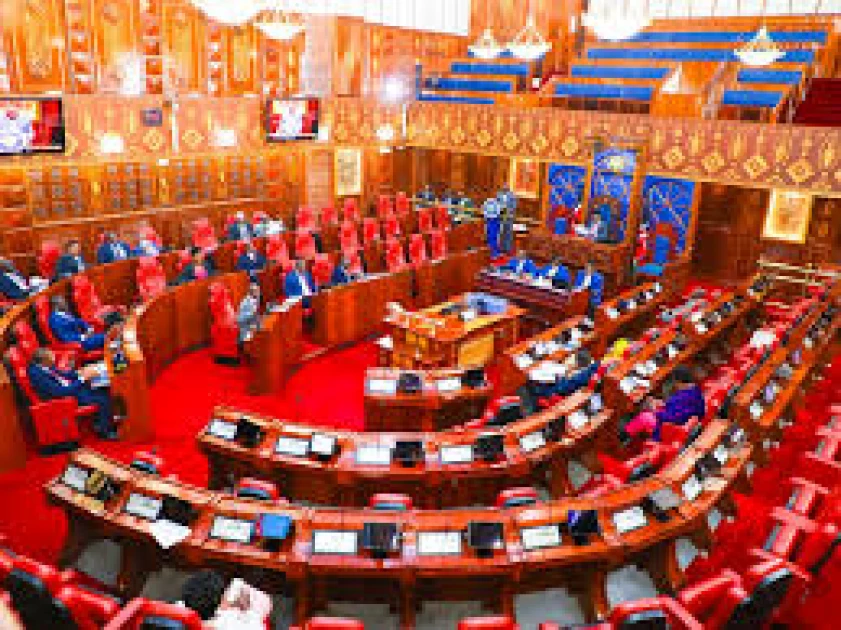The Conflict of Interest Bill 2023 brings out true colors of Senators


Audio By Vocalize
The bill seeks to maintain public trust in public institutions and reduce the risk of corruption, favoritism and bias, thereby upholding the integrity of public service.
It also seeks to ensure trust between citizens and public institutions. This could lead to greater citizen engagement, cooperation and support for government initiatives.
The Ethics and Anti-Corruption Commission (EACC) mandate often overlaps with efforts to combat corruption. By administering the Act, if it is passed into law, there will be better coordination between conflict of interest management and broader anti-corruption initiatives, thereby maximizing the effectiveness of both.
STRONG VESTED INTERESTS
When the Conflict of Interest Bill 2023 made its way to parliament little was known of the way it would rattle the status quo of strong vested interests beginning with the Senate.
On May 16, 2024, Senators showed a never witnessed solidarity voting to amend the bill. The Conflict of Interest Bill 2023 sought, in effect, to reverse what was made possible by The Public Service Structure and Remuneration Commission of 1970, otherwise known as the Ndegwa Commission.
The Conflict of Interest Bill 2023, is proposed to be administered by the Ethics and Anti-Corruption Commission (EACC) to ensure that no public or state officers are involved in matters that conflict of interest in all their dealings, and adhere to compliance measures in their dealings at all times.
However the Senate, charged with ensuring public interest and vested with the power to pass the Bill into law, alongside the National Assembly, have decided to cut its leg by either deleting or watering down its stringent clauses.
NDEGWA COMMISSION PROPOSAL
The Ndegwa Commission report was presented and made operational by the government in 1971. Its core mandate was to advice the government on issues of remuneration, performance and management within the public sector.
In an era immediately post-independence, it sought to pursue “Africanization” of the commercial and industrial sectors in the country, but by that very act, the Ndegwa commission gave leeway to holders of public interest to pursue commercial interests, indeed with while still employed by the public sector.
Before this time, there had been a ban on holding shares in commercial entities by public or state officers.
All this was done, ostensibly, in good faith, to stop the repatriation of commercial profits to countries out of Kenya.
Many pundits allude to the Ndegwa report’s adoption as the water-shed moment in the history of corruption in Kenya. From this point forward, corruption within the public sector was supported by policy and with no proper code of ethics to reign in top public officials, corruption produced public sector multi-millionaires in a very short time as public sector services took a nose dive affecting the citizenry to date.
In advanced countries world over, the wealthiest class of citizens would most likely be found among industrialists, multi-national business entities, Information Technology service trailblazers, Sports, Art, Music and Film icons, among others.
However, in Kenya, just akin to other jurisdictions facing endemic corruption within the public sector, there exists a political class that is outrageously wealthy without a clear process of creating fundamental impact within the communities where they live or serve. They own no industries and offer no services, their only claim to legitimacy is trade with the government.
A UNITED HOUSE
When the Conflict of Interest Bill 2023 made its way to the Senate a lot was expected of the higher house to pull their weight in the right direction and close the door to single biggest contributor of corruption in government, open conflict of interest in trading with their employer.
With none bolting out, and none preserving the intention and integrity of the Bill, all twenty five senators present opted to amend the Bill, thereby watering it down and in the process defeating the very purpose for which it was introduced.
The Bill is therefore headed to the National Assembly where eyes are on the Members of Parliament to see if they will emulate their Senate counterparts and proceed to water down the Bill of if they will for once stick with the common good and pass the Bill in its original form.
This is not to say that the Conflict of Interest Bill 2023 had no need absolutely for any amendment to be done.
A few clauses needed clarity, there were instances that the Bill presented numerical typos and of course they were several instances where legal minds thought was intrusion into public officers lives and hence the need to protect private space and also clauses that were ambiguous and would have done with more concise and precise wording for brevity.
The Public Officer Ethics Act 2003 suggested a repeal of (“the Public Officer Ethics Act”). It also proposed transitional provisions facilitate the smooth implementation of legislative changes by providing a framework for transitioning from the old legal regime to the new one, ensuring a seamless transition for affected individuals.
All eyes are now on the National Assembly to pass the Bill undefiled or else it will be yet another sterile attempt to stop public officials from ratified plunder of public resources.


Leave a Comment